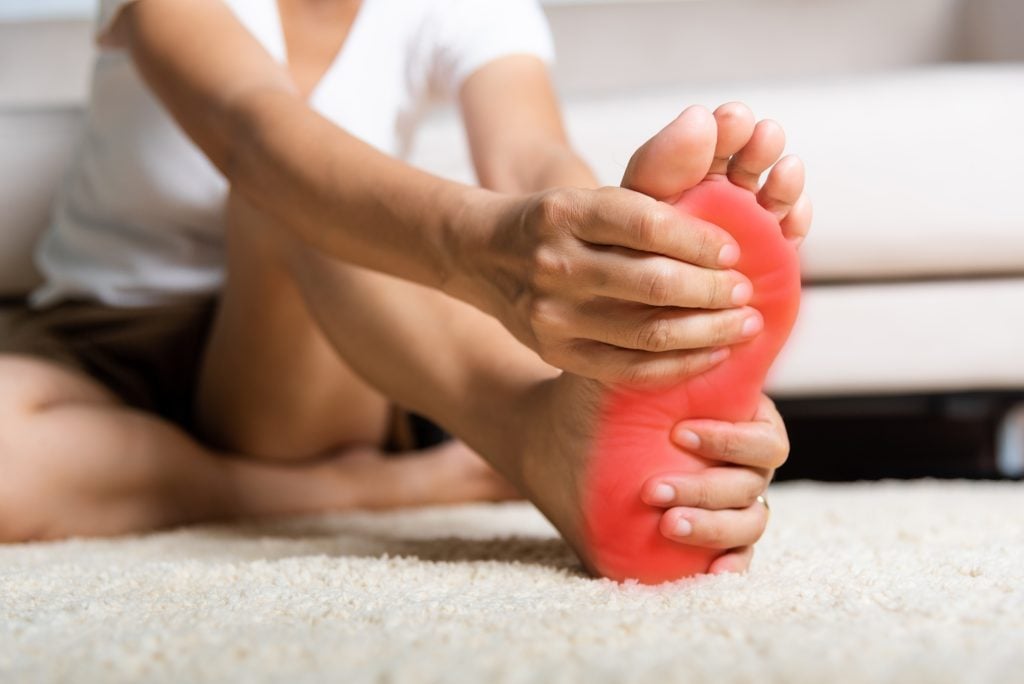Living With Peripheral Neuropathy: Coping Strategies And Support Resources
Peripheral neuropathy can significantly impact one’s quality of life, manifesting in symptoms ranging from numbness and pain to muscle weakness.
Living with this condition is unique for everyone, yet a common thread ties them together—the relentless quest for relief and adaptability. Understanding effective coping strategies and tapping into supportive resources can make the challenge of living with peripheral neuropathy profoundly more manageable.
This article explores seven coping strategies to help individuals cope with peripheral neuropathy. It also suggests pathways that offer support resources.
What Is Peripheral Neuropathy?
Peripheral neuropathy results from damage to the peripheral nerves, leading to disrupted signal transmission.
It manifests diverse symptoms such as sensory changes (pain, numbness), motor impairments (muscle weakness), and autonomic dysfunction (blood pressure irregularities, gastrointestinal issues).
Causes range from metabolic disorders like diabetes, toxic exposures, infections, autoimmune diseases, and genetic predispositions to nutritional deficiencies.
Targeted treatments and lifestyle adjustments are necessary to address both symptoms and underlying causes. Click here to learn more about the best options available.
Managing Peripheral Neuropathy
Managing these symptoms requires a comprehensive approach. Here are several coping strategies that might help:
- Medication
Pain relief for peripheral neuropathy can range from over-the-counter options like acetaminophen and ibuprofen to prescription medications. Prescription options may include anti-seizure medications such as gabapentin or pregabalin, which are used to treat nerve pain.
Antidepressants, particularly those in the serotonin-norepinephrine reuptake inhibitor (SNRI) category, can also be effective in managing pain by altering pain perception pathways in the brain.
Topical treatments, including capsaicin cream or lidocaine patches, provide localized pain relief by numbing the nerve endings at the skin’s surface.
- Lifestyle Changes
Proper nutrition is essential in managing peripheral neuropathy. Deficiencies in vitamins, especially B12 and B6, can exacerbate symptoms. Supplementation, under a healthcare provider’s guidance, can help alleviate symptoms in some cases.
Alpha-lipoic acid, an antioxidant, has also shown promise in reducing pain and improving nerve function in some studies.
Exercise is equally important because it improves blood flow, reduces inflammation, and can help control blood sugar levels, especially in diabetic neuropathy.
Low-impact exercises, such as walking, swimming, or cycling, are recommended to avoid stress on the feet and hands, where symptoms are often most pronounced.
- Avoiding Toxins
Exposure to toxins, including heavy metals and certain chemicals, can worsen peripheral neuropathy. Reducing exposure and avoiding excessive alcohol consumption, which can further damage peripheral nerves, are key preventive measures.
- Alternative Therapies
Alternative therapies, such as acupuncture, can offer relief by stimulating certain points in the body, which is thought to trigger the release of natural painkillers called endorphins, improve blood flow, and possibly enhance nerve function.
While acupuncture is not universally effective, many individuals find significant symptom relief through regular sessions.
Massage also helps by improving circulation, which can nourish damaged nerves with increased blood flow, and by reducing stress levels, which can exacerbate pain sensations. Regular massage sessions can be a valuable component of a comprehensive treatment plan.
- Emotional And Psychological Support
Chronic pain and loss of function from peripheral neuropathy can lead to depression and anxiety. Professional counselling or therapy can provide strategies to cope with these challenges, improve mental health, and enhance the quality of life.
Similarly, connecting with others who understand the experience of living with peripheral neuropathy can provide emotional support, practical tips, and a sense of community. Support groups, whether in-person or online, offer a platform to share experiences and coping strategies.
- Practical Measures
For those with peripheral neuropathy, protecting the hands and feet from injury is crucial. Wearing protective footwear and avoiding activities that may lead to cuts, bruises, or burns can prevent complications. Regular inspection of the feet for injuries is important, especially for individuals with diabetes.
To minimize the risk of falls and injuries, individuals with peripheral neuropathy should implement safety measures at home. This can include securing loose rugs, improving lighting, and installing grab bars in bathrooms and along staircases.
Access Support Resources
Accessing support resources for peripheral neuropathy can significantly help in managing the condition. Here are several avenues where you can find support and resources:
- Online Support Groups And Forums
The Foundation for Peripheral Neuropathy provides a wealth of resources, including a directory of support groups, educational materials, and updates on the latest research concerning peripheral neuropathy.
Similarly, the Neuropathy Action Foundation is dedicated to providing education, advocacy, and support for those affected by neuropathy, with a website that includes valuable information on symptom management and a calendar of events for webinars and support group meetings.
The HealthUnlocked neuropathy community is an engaging online forum where individuals affected by neuropathy can share their experiences, receive advice, and find support among others facing similar challenges.
- Social Media Platforms
Many Facebook and Reddit groups exist where individuals with peripheral neuropathy share experiences and tips for management and offer support within a moderated, positive community environment.
- National And Local Organizations
The National Institute of Neurological Disorders and Stroke (NINDS) provides comprehensive information on peripheral neuropathy, including detailed descriptions of the condition, treatment options, ongoing research studies, and clinical trials.
Local hospitals and clinics often host patient education centres or support groups for individuals dealing with chronic conditions like peripheral neuropathy, offering a local, in-person resource.
- Professional Counseling Services
Engaging with mental health professionals who have experience dealing with chronic illness can offer significant support in managing the emotional and psychological impact of living with peripheral neuropathy.
- Healthcare Providers
Your primary care physician or neurologist can be an excellent resource for referrals to support groups, counselling services, or other community resources that can assist in managing peripheral neuropathy.
Takeaway
Peripheral neuropathy becomes more manageable when individuals embrace a comprehensive approach that includes medical treatments, lifestyle adjustments, and alternative therapies.
Accessing support resources, such as online communities and professional counselling, plays a crucial role in providing emotional support and practical advice.
Together, these strategies and resources empower those affected by peripheral neuropathy to lead a more comfortable and fulfilling life.






I was not familiar with this condition. It is interesting to learn more about it and having the insight as to what it is like to live with peripheral neuropathy.
This post is very important to the patients or people who have peripheral neuropathy. Because this is very important to them how should they or other people take care of this people who have this.
I don’t think I know anyone personally with his condition but it is really good information to have. Thanks a bunch.
Some people are really going through stuff. I don’t know how I would cope with this condition.
Peripheral neuropathy sounds kike it can be incredibly painful! These are great tips and tricks for overcoming the discomfort that comes along with this ailment.
My sister has this and she wears expensive protective shoes in order to be able to work and walk around, but even so it’s difficult. It’s a hard condition to live with in a world where we have to be so mobile!
I can see how informative your article is on living with peripheral neuropathy. It’s a condition that affects many, and your compilation of coping strategies and support resources provides invaluable assistance to those navigating this challenge. Well done on shedding light on such an important topic and offering practical guidance to those in need.
I think this is a condition that can be caused by poorly controlled diabetes. I don’t have neuropathy and I’m controlling my own sugar so I won’t get it. Thanks for the info.
I can’t imagine having to deal with this all day and night. I think these tips are going to help a lot of people!